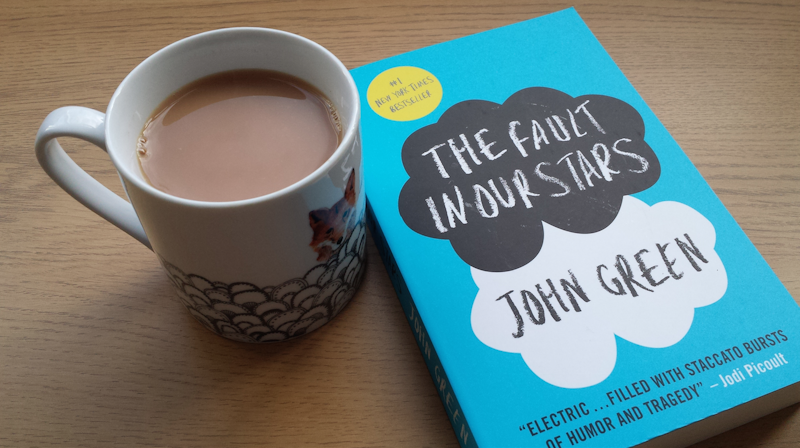I was browsing The New York Times bestsellers in a local bookstore and was a bit embarrassed to finally purchase The Fault in Our Stars. When the saleswoman told me, “All the kids are buying this book,” I almost lied and told her it was for my young teenage daughter, who by the way is not a teenager, she’s in her 20s. I’m a grown woman, but NPR recommended it and I wanted to give it a go.
I’m not sure what constitutes YA (young adult) fiction, but The Fault in our Stars is categorized as such and it felt like I was buying a Nancy Drew book. Until I read it. The novel is beautifully written and done with such humor and lightness; it didn’t have that weepy, saccharine feeling that some young love-mixed-with-death stories do.
I had a friend and her 13-year-old daughter come to swim at my pool the other day.
When I brought the book out to read, my friend’s daughter was all over it. “What part are you reading? What do you think? I can’t believe you’re reading this, Mrs. H!” When I said, “Some infinities are bigger than other infinities,” one of the more popular quotes in the book, she swooned, hugged her arms and said “Awww.” This story of two kids battling life-threatening illnesses together seriously took over the brain and psyche of this young girl, and thousands of other young girls who’ve been running to the theaters to watch the movie.
The protagonist, Hazel, is a wise teenage girl living with cancer who meets and falls in love with Augustus, another cancer patient, at a support group meeting. It shows how children with terminal illnesses can have incredible depth of character. Often their biggest concerns are not about dying but about what a huge effect their illnesses have on the lives of the people they love. The appeal of this book was that author John Green gets everything right about being in love for the first time and confronting the realities of loss.
Am I too old for YA? Should I feel bad for hovering over literature that was written for children? No. While I’ll never be an adolescent again, I still ponder the meaning of life and death and the complexities of the world, no matter what age I am.

